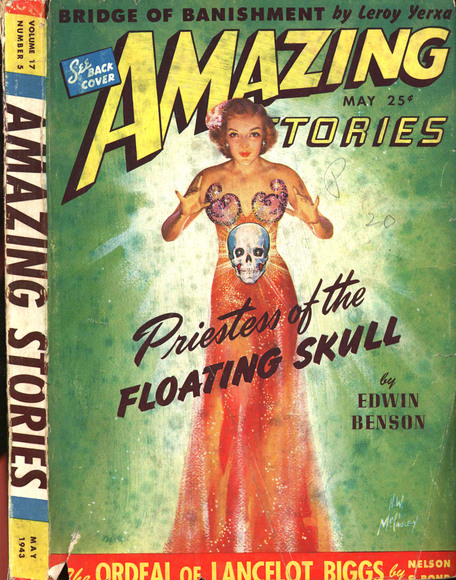I plucked a bud from a sprig. It was a gorgeous sprig, and its gorgeousness was unimpaired by my plucking. It bore buds beyond counting, and I would defy even the most eagle-eyed of observers to pinpoint the spot on the sprig from which I plucked the bud. A boy scout or girl guide, set a challenge to ascertain if the sprig were whole or had suffered a tiny depredation, would have failed, I am sure, as sure as eggs is eggs. But there were no scouts or guides hereabouts, nor even Woodcraft Folk, for the area had been cordoned off, by coppers, following an enormity. Oh, perhaps a police officer’s child, aptly chaperoned, might have been allowed in. But it was unlikely, for this was remote woodland, far from town, far from where tinies gather and cavort.
The enormity, involving slaughter and an axe and a great deal of blood and gore had, it was assumed, been committed by the psychopath Babinsky, of whom there was no sign in the immediate vicinity. He was perhaps hiding in a copse. Dogs were sniffing. It was by dint of the dogs that I had been allowed through the cordon, for I am a specialist in the interpretation of dog behaviour. It has been said of me, cruelly but with some measure of truth, that I understand dogs better than I do humans. Sometimes, I wake suddenly in the night, barking and howling. My hands are hairy.
In plucking the bud from the sprig I was not neglecting my duties. We had entered the copse, the dogs and I, in search of Babinsky, and it was the work of a minimoment to pluck the bud from the sprig. I barely thought about it. The woodland was dense, and it was in the densest of thickets one was most likely to find a killer concealed, and as I plodded in the wake of the sniffing dogs I had occasion, now and then, to raise my arms to push past sprigs and boughs that would otherwise have impeded me. In one such manoeuvre, I plucked a bright bud from a gorgeous sprig, absent-mindedly. I popped the bud into my pocket and forgot about it.
Of Babinsky, we found no trace that day, in that copse. When dusk approached, we called off the search. The dogs were driven back to their pound by my assistant, Zoltan, and I went home to write my report. I work so much better at my kitchen table, with a plate of toast and a tumbler of Squelcho!, than I do at my office desk, anent the pound, with all that dog din. In any case, my report was brief, for the dogs had sniffed in vain. I added my signature with a flourish and my colophon, rolled the paper into a cylinder and shoved it into a canister and sent it whizzing off down the pneumatic tube which connects my kitchen with police headquarters, elsewhere, elsewhere. I drained my tumbler of the last dregs of Squelcho! and found myself at a loose end.
If you were to conduct a straw poll of police dog behavioural experts at loose ends, I expect you would discover a huge variety of responses. Some might stare into space, some engage in a hobby such as carpentry or beekeeping, some might pour out another tumbler of Squelcho! and knock it back as if harrowed by thirst, some might go striding across the moors chanting the chant of the moors strider. To give but four examples. None of these appealed to me, there and then, so I rummaged in the pockets of my jacket, which I had not yet taken off and hung upon its hallway hook. Thus my fingertips fastened upon the bud I had plucked from the sprig in the copse. I am no botanist, not even an amateur one, but I wondered if the bud would sprout were I to plant it in a pot of damp soil.
No longer at a loose end, I tracked down, within my quarters, a pot and some soil. The soil was dry, so I added, from a spigot, a spot of water to endamp it, and I placed the pot of soil on a shelf. Then I pressed the bud into it, to reverse iceberg depth. That is, one-eighth of the bud was submerged in the soil while seven-eighths remained visible. Now I would wait for it to grow. Reasoning that it might be intimidated by the glint in my eye if I peered at it for hours upon end, I took off my jacket and hung it upon its hallway hook and went upstairs to bed, where I soon enough fell into a deep sleep, troubled only by a couple of occasions, in the depth of night, when I woke suddenly, barking and howling.
Also in the depth of night, unbeknown to me, there stirred, in the bud I had planted in soil in a pot on my shelf, a worm. This worm had lain concealed in the bud as thoroughly as Babinsky had lain concealed in the copse. Yes, despite the best efforts of my sniffer dogs, the psychopath had been there all along! Now, of course, under cover of the night, as I slept in my bed and the dogs slept in their pound, he fled to another hiding place, a cave or a spinney or a boarded-up chalet at a seaside resort, just as the worm fled the bud. Wriggling and creeping, like an abomination mentioned in the Bible, the worm emerged from the bud, and crept across the soil and over the rim of the pot and down the pot’s side and on to my shelf and across my shelf to its bracket and down the bracket and down the wall and over the wainscot to the floor and across the floor to the foot of the staircase and then up the stairs one by one to the pine boards on my mezzanine and across the boards into my bedroom and up the bedpost and on to the counterpane and along the counterpane towards the pillow and on to the pillow whereon my head lay as I slept my untroubled sleep. The worm in the bud had become the worm upon the pillow, and it was a canker worm!
The worm was crawling across the pillow towards one of my ears, clearly intent upon entering my head and burrowing into my brain, therein to lay its canker-worm eggs, when I sat up with a start and barked and howled. The sudden disturbance discombobulated the worm, sufficiently for it to change tack and move off towards the foot of the bed, where it was set upon by a bedbug. My barking and howling done, for the time being, I slumped back on my pillow and fell fast asleep, unaware of the tiny battle being fought near my tootsies, a fight to the death between canker-worm and bedbug from which only one would emerge triumphant. But which one?




